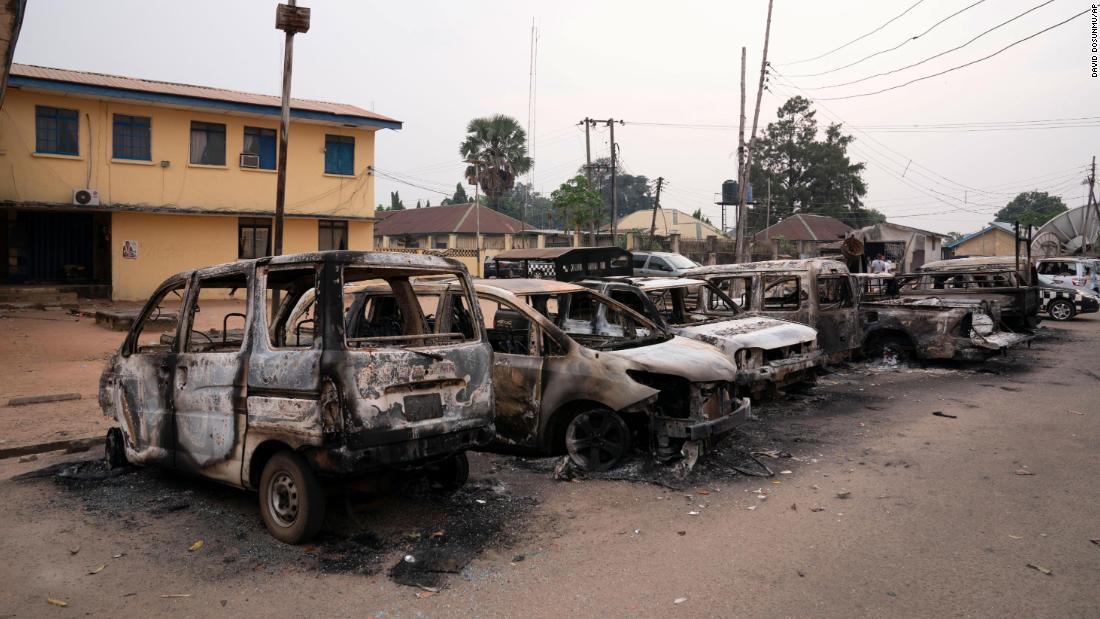
Six of the 1,844 detainees who escaped from the Owerri Custody Center in Imo State have returned voluntarily, according to a spokesman for the Nigerian Correctional Service.
Thirty-five others chose not to flee during the attack, authorities said.
The Nigerian police force has accused the outlawed secessionist group, the Indigenous Peoples of Biafra (IPOB) and its paramilitary wing, the Eastern Security Network (ESN), of the attack.
“The attackers’ attempt to gain access to the General Police Police Armory was totally and adequately resisted by the Nigerian Police Forces,” the force said in a statement on Monday, adding that no lives were lost in the incident.
Buhari also directed law enforcement agencies in the country to catch fugitive detainees and arrest perpetrators who are “believed to be deadly criminals,” the president said.
Nnamdi Kanu, the leader of the separatist group, IPOB, denied the organization’s involvement in the attacks.
He told CNN: “We have no hand in what happened in Owerri, Imo State. Having said that, we acknowledge and acknowledge the anger, resentment and injustice that many people feel – especially those young people, “he said. said.
“So what is happening now is that people are trying to avenge the deaths of their loved ones at the hands of Nigerian security services. Some people, I think, have taken it upon themselves to say, ‘is enough. Wherever a government allows injustice, it only invites anarchy, Kanu added.
The Buhari regime continued to thwart IPOB activities, fearing that an escalation of secessionism – especially in the group’s strongholds in eastern Nigeria – could spark another Nigeria-Biafra civil war.
It led to a bitter civil war from 1967 to 1970 and over a million people starved to death as a result of the war.